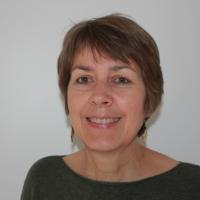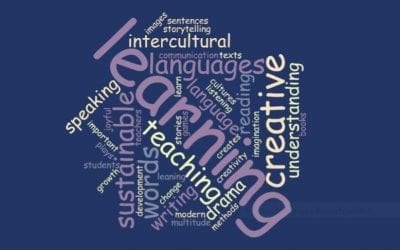Course Overview
Sustainable language teaching and learning, part 2
In this new run of the course, participants are invited to join a learning community of foreign language teachers who are interested in developing sustainable ways of language teaching and learning. We understand learning as a relational process. Hence we will look at the subject, the teacher and the child.
We have divided the original course into two parts. As preparation for this second part of the course, it is useful to enroll in part 1 first. With regard to language learning, part 1 focuses on the realm of orality. Moreover the basic tools of action research and collegial conversations – the backbones of our elewa courses – are introduced which enable teachers to learn from their own teaching as well as from each other. Through watching the videos, reading the texts and working on the various tasks which focus on child development including natural language acquisition and the basic steps in the learning process, you will be well prepared to start with this second part of the course.
In part 2, we will focus on reading and writing and introduce various ways and projects which aim at sustainable language acquisition. Examples are taken from the lower classes up to class 12. Moreover, we will introduce a variety of methods that can help children and teenagers to learn new languages in school according to their own capabilities, motivated by joy and interest.
With a holistic perspective on the human being, we work with inspiration and imagination towards creative ways of teaching and learning languages in a globalized world. It is part of our vision of a global learning community of teachers that participants communicate with each other and learn with and from each other throughout the course.
The second part of the course is divided into 5 sections which equal approximately the workload for one week each. As in part 1, the first section offers some introductory information. Moreover we invite you to find colleagues to team up with for collegial communication – as it was explained in part 1 / week 1 of the course. With section 2 the Sustainable language teaching and learning course will than resume with “week 3”.
So all in all (part 1 and 2), you are invited to engage with thoughts and experiences about Sustainable language teaching and learning for nine weeks. During this time you will get to know background material, work on various tasks and assignments and get into contact with other colleagues.
We hope you will enjoy the course!
Course Content
- Welcome and overview
- Journaling
- Voices: Books – I couldn’t live without them!
- Bringing the world into the classroom
- Voices: The meaning of literature in FLL
- Teaching FL in classes 1 to 3
- Voices: That’s how it all starts!
- Voices: Storytelling in the lower classes
- Voices: A time of transition – getting familiar with the alphabet
- Voices: taking steps towards literacy
- Journaling
- Reading in the middle school
- Extensive reading in the middle school
- Extensive reading in the upper school
- Reading projects and presentations
- Intensive reading in the upper school
- Assignment: practitioner research project
- Community circle meeting
- Welcome and overview
- Journaling
- Voices: getting children involved and interested
- We learn what we are interested in …
- … and what seems to be relevant for us.
- Voices: an anthroposophical perspective on learning
- Journaling
- Voices: Doing the real thing
- More thoughts on authenticity
- Assignment: practitioner research
- Community circle meeting
Instructors
Ulrike Sievers was born in the North of Germany. She studied English and Biology and has taught both of these subjects in Waldorf schools with great enthusiasm for over 20 years. Her main interest is in how school education can create a space in which children and young people can grow up in a healthy way, develop a love for nature and the living world and become interested in other people, their cultures and their languages. She has also contributed nationally and internationally to teacher education and offers courses for students at the Waldorf seminar in Hamburg and Stuttgart.


